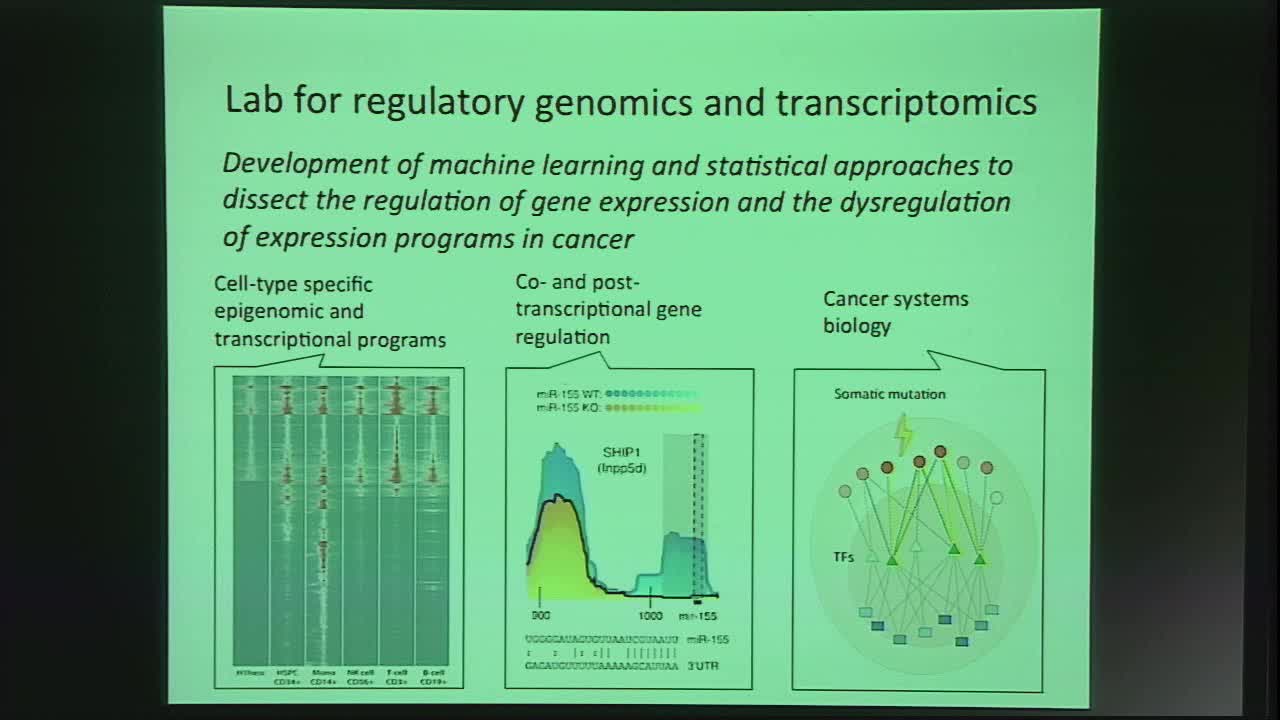Epigenomic programs in immune cells and response to immunotherapy
Presenter
September 14, 2017
Keywords:
- Epigenetics, chromatin accessibility, next-generation sequencing, gene regulation
Abstract
Dysregulated epigenetic developmental programs are a feature of many cancers, and the diverse differentiation states of immune cells as well as their dysfunctional states in tumors are in part epigenetically encoded. We developed an integrative computational strategy to exploit genome-wide data on chromatin accessibility (DNase-seq or ATAC-seq), histone modifications (ChIP-seq), and transcription (RNA-seq) in order to study enhancer landscape and gene expression dynamics in cellular differentiation, with a focus on the hematopoietic system. We then used these methods to study the chromatin dynamics of tumor-specific T (TST) cells in tumors. We profiled the gene expression (RNA-seq) and chromatin accessibility (ATAC-seq) landscapes of functional T cells and dysfunctional TSTs using a mouse genetic system where the SV40 large T antigen serves as both the oncogenic driver and the neoantigen. We showed that TSTs differentiate to dysfunctionality through two discrete chromatin states: an initial plastic state that can be functionally rescued and a later fixed state that is resistant to immunotherapeutic reprogramming. We computationally identified transcription factors (TFs) with global changes in binding site accessibility during progression to the fixed dysfunctional state and found that in vivo pharmacological modulation of identified TFs decreases or delays dysfunction. We also showed that patient-derived PD1 high tumor infiltrating lymphocytes (TILs) display an epigenetic signature of fixed dysfunction, and we defined novel cell surface markers that demarcated reprogrammable TSTs within the heterogeneous TIL population, a finding of potential clinical significance.
